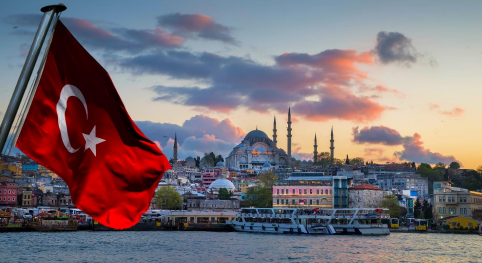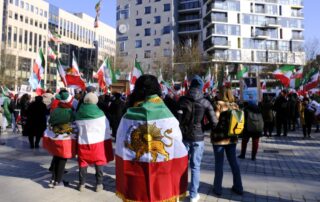
While all of Europe has felt the impact of the Russia-Ukraine War, the Turkish economy has taken a significant hit based on its unique geographic location. With a breakdown in trade in the region, Turkey has had to start working on a new economic strategy that balances political pressure from both Europe and Russia. On a positive note, the fact that Turkey has maintained a stronger relationship with Russian than the rest of Europe means that Turkey may be in an excellent position to mediate between Ukraine and Russia if the opportunity arises.
According to 2021 data, Turkey's exports to Russia were 5.77 billion USD, and imports were 28.95 billion USD. Oil and natural gas accounted for 50% of Turkey's imports. Although not fully a party to the sanctions imposed on Russia, Turkey complies with the sanctions imposed on Russian banks and restrictions on exports to Russia, which has an indirect effect. Like EU countries, Turkey has increased its natural gas imports to store natural gas throughout 2022.
Although Ukraine was a key grain exporter to Turkey, trade levels between Turkey and Ukraine were much lower than with Russia historically. The Bosphorus line is the primary avenue for container ships transporting grain. Despite the conflict, Turkey executed an agreement with Ukraine in 2022 to help ensure trade would continue. However, the navigation of merchant ships in the Black Sea and along the Bosphorus line has decreased, impacting grain shipments.
The continuation of the Russian-Ukraine war profoundly impacts Turkey's supply chain with Europe and Asia. The conflict affects transportation routes and logistics, making it more difficult and expensive for Turkish businesses to trade with other countries in Europe and Asia. Turkey previously had significant advantages in truck transportation with competitive prices and reasonable labor costs compared to EU countries. Now specific routes are off-limits, drastically decreasing logistics revenue.
The War has also severely impacted the Bosphorus Strait, which connects the Black Sea to the Mediterranean. The cessation of trade in Russia's Black Sea ports and Russia's blockade of Ukrainian ports have made this a dangerous and low-profit destination for shipping companies. In addition to the cargo capacity decrease, shipping fuel and insurance costs increased. This has led to higher fees for shipments traveling through the area.
Turkey imports a staggering 98% of its gas, much of which comes from Russia. In fact, Russia has courted Turkey as a future site for a gas trading hub to supply gas sourced in Russia further into the European continent and beyond. The ongoing War has complicated matters and left the path ahead unsure, as Turkey is feeling pressure from Russia and the West. Significantly, the EU is still buying Russian gas even as production ramps up in other locations, including Azerbaijan and Norway. Hence, trading in Russian oil is not yet off the table.
Importantly, if Turkey does establish itself as a significant gas trading hub, there may be room for US producers to export their gas supplies through Turkey.
The recently re-elected president of Turkey, Recep Tayyip Erdogan, recently solidified control over the country and is now setting his economic agenda, which, because of the war involves balancing the interests of Russia and the West simultaneously.
Because of the need for significant foreign investment, Turkey has pivoted slightly towards the West economically and politically. While this has not drastically impacted Turkey-Russia relations, Turkey's engagement with Ukraine will likely test the relationship.
US companies in the international logistics and energy sectors should closely monitor Turkey's effort to establish itself as a regional gas hub. This could create opportunities for US companies to invest and sell their gas supplies.
Importantly, companies seeking to invest in Turkey must also navigate significant risk when operating in the region.
US companies aiming to establish a foothold in emerging markets or seeking out a strategic trade location in Turkey should strongly consider putting a due diligence plan in place to assess the basket of risks relevant to a specific investment opportunity. This includes ensuring that country-specific analysis takes place before committing significant resources.



